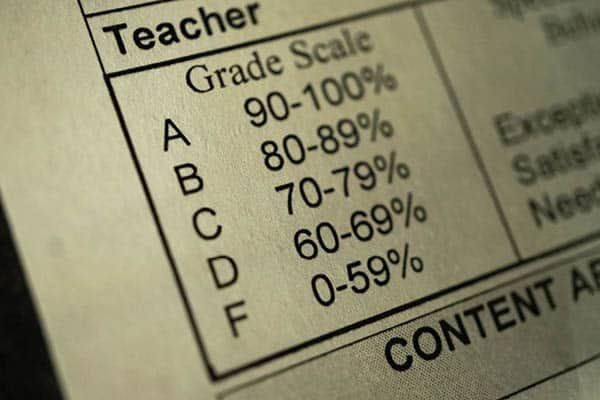The push for more equitable grading policies has contributed to grade inflation and yielded little evidence of increased rates of learning, according to a report released by the Thomas B. Fordham Institute, an education reform research and analysis organization, as reported in K-12 Dive.
While some grading reforms have merit and may benefit students, practices like “no-zero” mandates, homework bans and prohibitions on penalties for late work and cheating can reduce expectations and accountability for students, the report said.
While concerns about grading inequities are legitimate, some new policies can hamper expectations for students, according to the report’s co-author, Meredith Coffey, a senior research associate at Fordham.
“We argue in the brief that top-down policies that lower expectations and limit teacher discretion aren’t the answer — and what’s more, these policies even risk doing academic harm to the very students policymakers are trying to support,” Coffey said in an email.
For example, the report points out that some new grading policies like prohibiting teachers from issuing zeros on assignments and bans on homework “confuse parents and other stakeholders who do not understand what grades have come to signify,” making it harder to address learning loss.
Coffey and co-author Adam Tyner, national research director at Fordham, classify some grading practices — including mandatory retakes, rubric-based grading, “blind grading” and grading done by someone other than a student’s teacher — as ways to combat bias in grading. Other practices, like grading for participation and allowing extra credit, were described as contributing to bias.
Other research has pointed out an increase in high school students’ GPAs over time. A 2022 study from ACT, the nonprofit that administers the college admissions exam of the same name, found high school GPAs rose by 0.19 grade points on average, from 3.17 in 2010 to 3.36 in 2021.
Specifically, the report recommends:
1) Maintaining high expectations. District leaders and state education agencies should support educators’ efforts to hold students to high standards, as well as be aware of grade inflation. Being flexible when needed. Schools and their academic departments should be allowed to weigh the costs and benefits of grading approaches and be understanding of a teachers’ decision to offer a student reprieve when they truly need it. Leaders should avoid mandating reforms that could force teachers to lower standards and expectations.
2) Widely adopting some equity-centered reforms. Merging effective traditional and equity-oriented approaches, such as eliminating most extra-credit assignments and implementing rigorous rubrics, can help strengthen academic courses and prevent bias.
K-12 Dive






